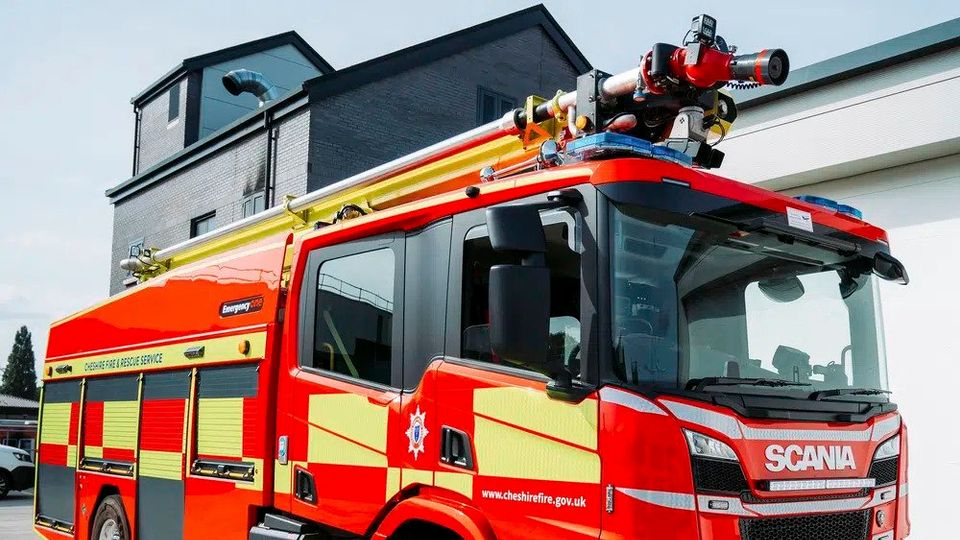After a house fire, even a mild one, it’s natural to feel a sense of loss and uncertainty. You may not know what to do next, or what the future has in store for you. But if you want to recover swiftly, there are some critical actions that you need to take.

Immediately After a House Fire
It’s assumed that you’ve already taken care of the most important immediate responses to a house fire. You’ve gotten out of the house. You’ve helped other people get out of the house. You’ve called 911 or you’ve gotten the fire under control.
At this point, you need to work on the following:
- Take a headcount. Take a headcount and make sure everyone is accounted for. If there are any people or pets still in the building, make sure to let the fire department know.
- Get medical attention. There’s a good chance you and your family members are going to require medical attention, especially if you were in the burning building for any considerable amount of time. If you contacted the emergency number, medical help will likely be dispatched to you. Otherwise, it’s important to go to the hospital and/or schedule an appointment, depending on the severity of your exposure. Even if you feel okay in the immediate aftermath of the incident, there’s a chance that adrenaline could be masking underlying damage.
- Let people know you’re safe. After getting medical attention, consider letting your family members and friends know that you’re safe. Neighbors, friends, and other people may become aware that your house experienced a fire, and they’ll worry about you if they don’t know your condition.
- Stay out of the home. As a general rule, it’s best to stay out of your home until you have the all clear from local fire authorities. Entering a house with fire damage, before it’s been cleared, can be extremely dangerous. The building has a chance of collapsing, trapping you inside. While it might be tempting to go in to see the extent of the damage or retrieve valuable possessions, it’s usually not worth the risk.
- Call a fire remediation specialist. Fire damage remediation teams do amazing work in cleaning up the damage in the aftermath of a fire. They can help you understand the scope of the damage, clear out items that are beyond salvaging, restore a wide range of items, and in some cases, restore your house to proper livable condition. Find an experienced fire remediation specialist with full credentials for the best chances of success.
- Begin working with your insurance company. This is also a good opportunity to begin working with your insurance company. You should know whether a structural fire is covered in your insurance policy already; if you don’t, review your policy now. Create an exhaustive, itemized list of everything you think you lost in the fire and take your time to ensure you don’t miss anything.
Days After a House Fire
In the days following the fire:
- Find a place to stay. You’ll need some place to stay if you’re not able to re-enter your home. Depending on your circumstances, that could mean staying with a relative, sleeping on a neighbor’s couch, or paying for a hotel. Note that in many cases, your insurance policy will cover temporary housing.
- Get a copy of the fire report. Obtain a copy of the fire report, which is official documentation of how the fire started, how it spread, and how it was extinguished. You can usually get this through your local fire department. It may be required by your insurance company, or it may be useful in processing your claim.
- Discard food and items damaged beyond repair. It’s a good idea to throw away any food that’s been exposed to smoke, soot, or intense heat. You’ll also need to discard any personal possessions that are damaged beyond repair. It’s sometimes difficult to distinguish between salvageable and unsalvageable items, so consider working with a fire damage remediation specialist to organize your possessions.
- Follow all medical advice. It’s also important to follow all medical advice. Depending on the extent of your injuries, you may require certain treatments, prescriptions, or follow-up appointments. Take these recommendations seriously.
- Seek (and provide) emotional support. A residential fire is an emotionally devastating event, so get emotional support from your friends and family members – and provide it to other people in your home. Depending on how you recover, it may be a good idea to seek talk therapy or other professional support.
Living through a house fire is emotionally traumatizing and often, financially devastating. But all is not lost. With the help of medical professionals, fire remediation specialists, and supportive friends and family members, you can get to the other side of this chaotic and painful event.
 World inside pictures Collect and share the best ideas that make our life easier
World inside pictures Collect and share the best ideas that make our life easier







